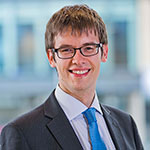04 June 2020
The refrain that the UK government is “following the science” about Covid-19 will now be familiar. But anyone with familiarity with expert evidence will have, at least, two issues arising from that: What question did they pose to get the advice? and What was the expert reasoning when coming to their conclusion?
So far as they relate to the current crisis, we will have to wait for the inevitable inquiry into the handling of the crisis, but both have relevance to how expert evidence should be employed in litigation. Specifically, their instruction and analysis of their reasoning and conclusions.
|
|
Both of these matters were considered by Lord Tyre in a recent medical negligence claim, McCulloch and Others v Forth Valley Health Boards. The nature of this type of case meant that the medical evidence was essential to the court’s findings.
Every expert report should start with the framing of the letter of instruction detailing the issues in the case and the lines of enquiry the party wishes the expert to consider. The letter should also attach any documents the party wants the expert to rely on. This stage must be carefully considered as these documents are likely to be listed in the resulting report which could require you to disclose them.
It is in this exercise where the defenders fell down in McCulloch. Not only had their expert been given documents which were not produced to the court, but he was asked to omit a list of statements he had regard to when forming his opinion. Lord Tyre thought “this was an entirely inappropriate course of action for the defenders’ solicitors and, I have to say, for Dr Bloomfield to have taken.” This caused him to have “considered very carefully whether I should regard this matter as impugning Dr Bloomfield’s impartiality as an expert witness”. Thankfully for the defender, having heard the expert’s oral evidence, Lord Tyre concluded that he should not.
There may be a case for asking an expert to exclude certain parts of their report, for example if they have strayed outside their area of expertise, but this should be a careful exercise. In this case the defenders were lucky to avoid any negative impact on the weight the court would place on their only expert.
On receipt of the report the basis of the expert opinion needs to be analysed. Any opinion to be relied upon should be logical and based on a sound foundation of knowledge and fact. The consequence of failing to consider the report in those terms could be disastrous to your case as the court is unlikely to prefer their evidence if flaws are found on these lines. If an issue is found then a consultation with the expert may assist in resolving them before the case gets to court.
In McCulloch both the pursuers’ and defender’s expert’s evidence were not accepted in full. The pursuer’s expert had based part of their evidence on clinical studies but because these were from a small sample size any conclusions he drew from them were rejected. The defender’s expert’s opinion that an echo cardiogram did not need to be instructed, in opposition to the pursuer’s expert opinion, was rejected as not reasonable or logical when considered against the facts of the case. On that basis negligence was established against the defender, although they successfully defended the case on causation.
The effective use of scientific evidence in court needs careful consideration both before and after instruction. It is rarely as simple as “following the science”, particularly where there is a difference of opinion which goes to the heart of the case. Appropriate instruction, analysis, and, where required, clarification of expert evidence is therefore essential in mitigating the risk of issues such as those found in McCulloch arising.
Contact
Lewis Richardson, Associate & Solicitor Advocate E: lre@bto.co.uk T: 0131 222 2942



